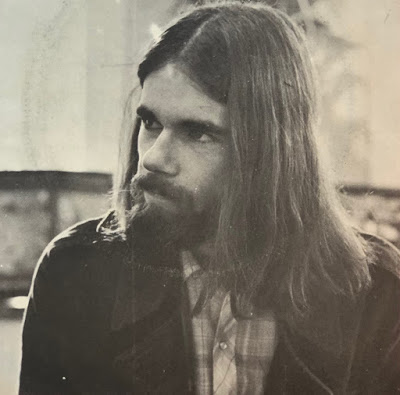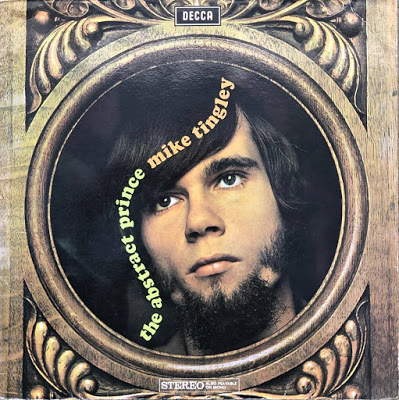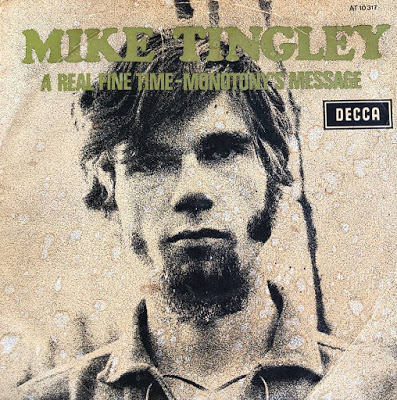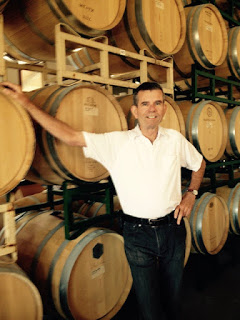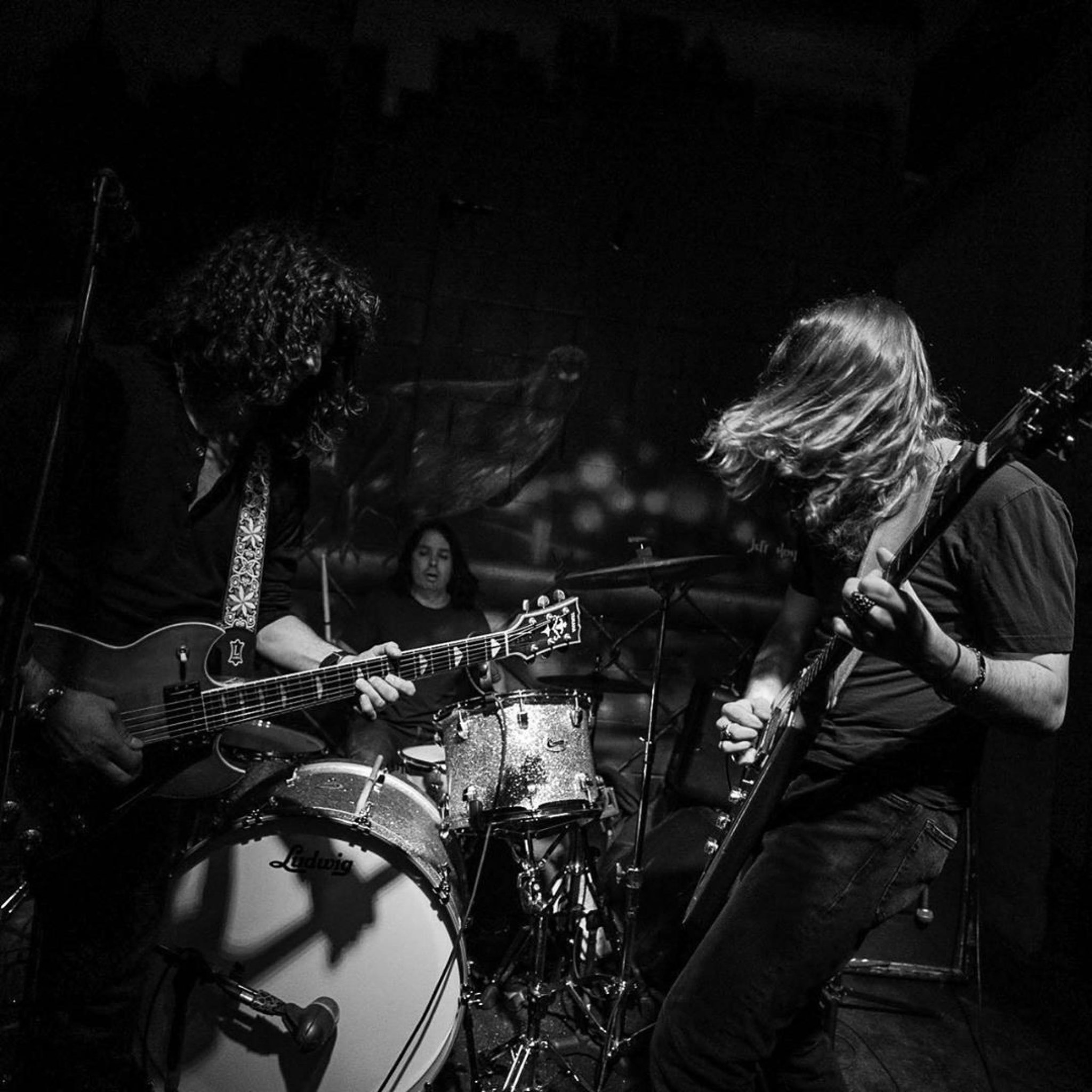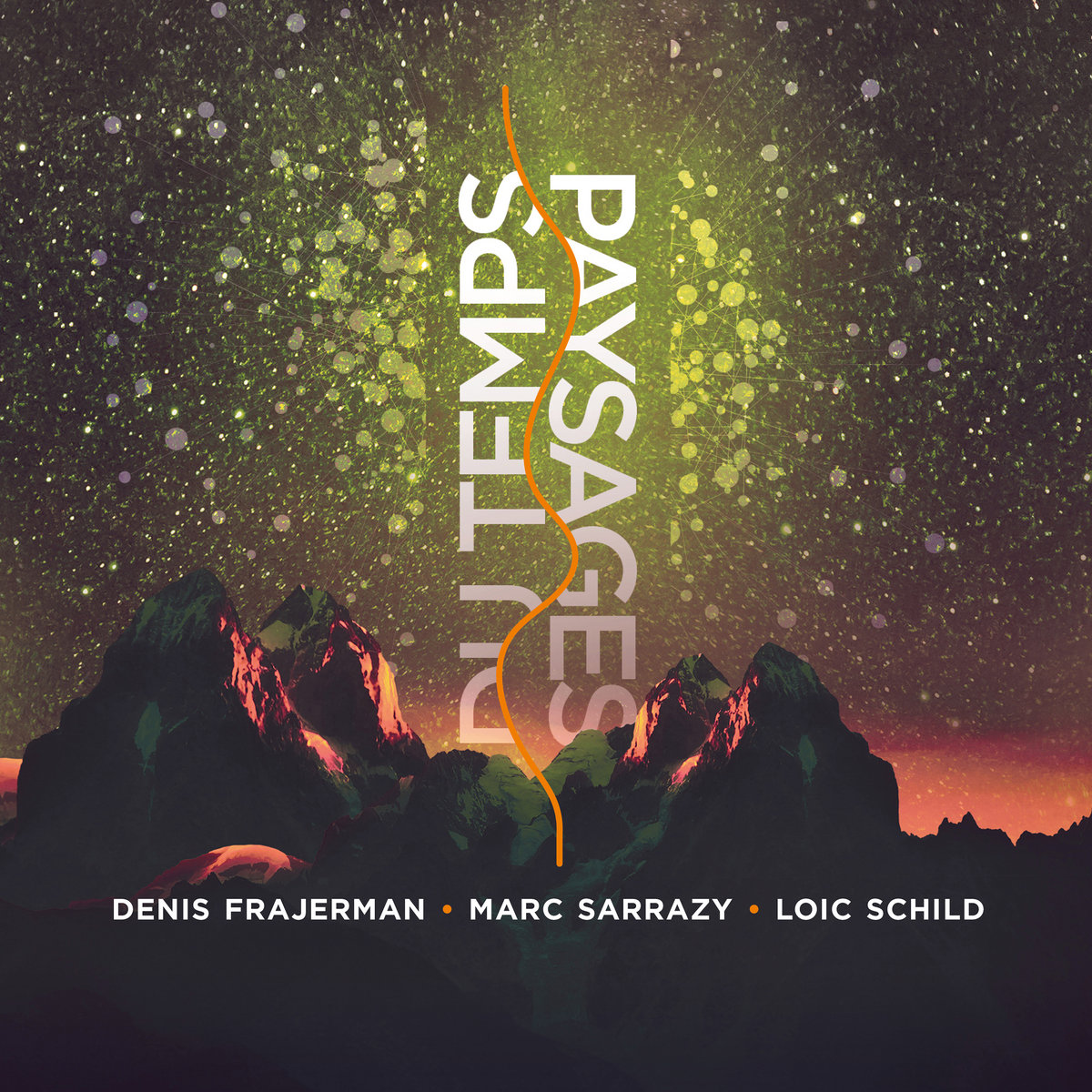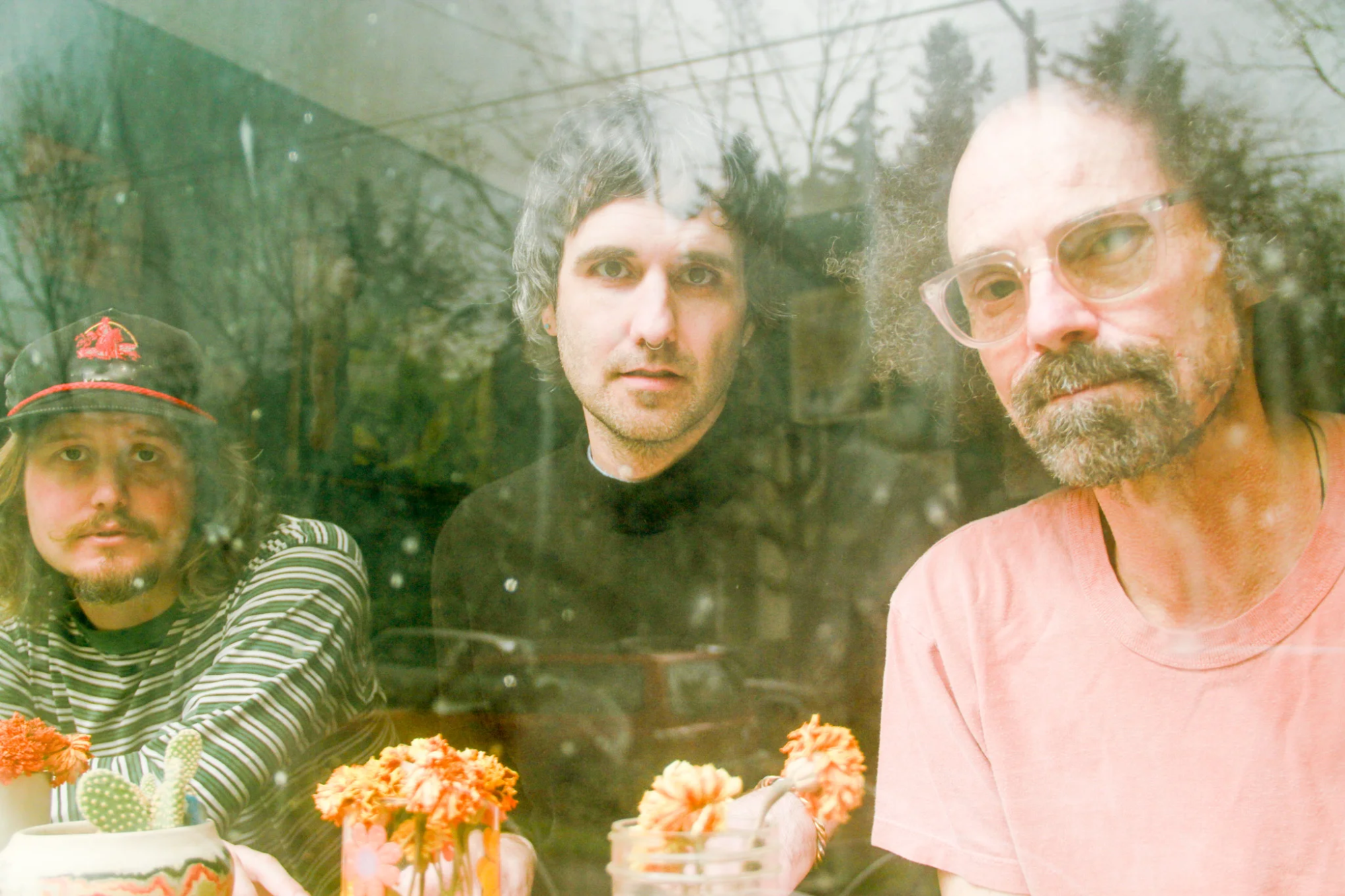Mike Tingley interview
Mike Tingley from Southern California packs up his life and guitar to follow a Swedish exchange student back to her home land in 1967. It doesn’t work out. He goes as far as he can with whatever funds he has left, guitar in hand. It’s Holland.
Having never performed outside his bedroom, he plays coffee shops for tips. Spotted by a member of prominent Dutch band, Blues Dimension who brings his label’s A&R guy, he’s asked it he wants to record an LP. He records a lush, baroque, orchestral pop sike album. It’s released on a Decca in Holland. He appears on national TV and radio, along with supporting on a few tours.
With royalties earned on the album he returns to Southern California and heads to Hollywood with the imminent release scheduled on Decca Records in the USA. It doesn’t happen. Not the plot of a new movie. This is the abridged story of the lost, barely known treasure that is Mike Tingley The Abstract Prince. Blank Records reissued this lost artifact!
When did you start playing music? First instrument? Major influences?
I started playing in the early 1960’s. My first instrument was the guitar. Musical influences were folk music, the Beach Boys and the Beatles.
Were you part of any bands in the early 60’s?
No, I was solo and was afraid to play in front of other people.
You went to Sweden as a Swedish exchange student, but you ended up in Holland. How did that come about?
I had met her in California just before she was planning to return to Sweden after being in the States for a year. She was going to begin her University studies. Well I thought that I was in love and I wanted to be with her. So I packed my duffle bag and my 12 string guitar, hitchhiked to Oklahoma City on Route 66 then took a Greyhound Bus to New York City, bought a one way ticket (I did not have enough money for a round trip) on Icelandic Airlines and arrived in Gothenburg, Sweden. It was October, 1967. I was 20 years old. Well, she was shocked to see me there! It was a complete surprise! We had some great times and she took me home with her and I met her family. Lovely people. It was there that I first played my music in front of other people. After a few weeks she told me that she wanted me to move on. I was devastated. I had no ticket home. So I got to Copenhagen and looked at a map of Europe, counted what little money that I had, and calculated that I had enough to get as far as Amsterdam. So off I went.
You performed in coffee shops and were spotted by a local Dutch band Blues Dimension. What kind of material did you play and what is the story behind meeting the guys of Blues Dimension?
When I started performing live during my stay in Sweden I was doing mostly Beatles tunes, folk and country & western tunes with a few of my own compositions as well. When I first arrived in Holland I was playing coffee houses and bars for tips. I was surprised to receive many requests for my original material. Cees de Best, the guitarist in the Dutch rock group Blues Dimension was at one of my performances and asked if I had a demo tape of my material. I said yes (I had recorded it at home several months before leaving for Sweden). He wanted to play it for his record producer Tony Vos.
Where did you perform in Holland?
I lived in a church subsidized hostel in The Hague. So I started out playing there, but Amsterdam was where the action was, so I started playing there as well. I also played in a few small towns where a few of my friends were from.
How was the alternative life there?
I loved it because it was so different from anything that I had known. I grew up in the suburbs of Southern California where very little was older than 30 or 40 years. Here in Europe there is SO much history. I marveled at walking on a street that might have been there for 500 years or visiting a church that was 900 years old. The hostel where I lived in The Hague was international so that I was hearing many different languages. I think that most Europeans take this for granted because there are so many nationalities and languages there. It was a revelation for me. I also loved the fact that both Sweden and Holland were (and still are) very socially progressive. And liberal nations.
The album was recorded at the Phonogram studios in Hilversum, Holland in February 1968. What are some of the strongest memories of the sessions?
I recall that the sessions went fairly quickly. Everybody was well prepared. We had Cees Kranenburg on drums and Jan Hollesteller on bass. Both, very experienced session players. Tony Vos was a legendary record producer and jazz saxophonist. He knew exactly the sound that he wanted. This studio was still recording on 4 track machines. So when we brought Bert Paige in to do the orchestrations, there was some very creative mixing that Tony and Gerard Beckers, the recording engineer, had to do. As I recall it, we recorded basic tracks within a week or two. Then we spent 4 or 5 days/nights mixing. I do recall great camaraderie between us all. There was a fair amount of laughter and fun. I recall wanting the Tabla as percussion on “Monotony’s Message” (my favorite cut on the LP) and the incredible sax work that Tony did on that tune. There were several evenings when, after the session, we would all go down the street to an Indonesian restaurant to have dinner and tell stories.
Would you share your insight on the LP’s tracks?
The title song “The Abstract Prince” is an anti war composition. I had friends that were in the military in Vietnam. I was very concerned for them. The inspiration for this song was Buffy Sainte-Marie’s song “Universal Soldier”. “Connected to Nothing” is an idealistic rant by me at age 19 about the older generation doing nothing to improve the world and that my generation was going to do better. ‘Begin the Sun” talks about how I thought (at the time) of how much I was in love with the girl from Sweden. It was the last song that I wrote before leaving the States. “It’s Time to Leave Her” was written about a friend’s failing relationship with his wife. “Of Sand” deals with being lonely and trying to establish relationships with people and then realizing that they don’t really care much about you. “See the People” is talking about being alone in a big city. I was wanting it to have a big band sound. My mother loved big band music. “Crossroads” was mostly written by my older brother Jim. He taught me how to play guitar. We worked together as a duo for several years. “Monotony Message” was written about meditation and revelation. About finding your own truth. “A Real Fine Time” is on the “A” side of the 45 RPM single that was released from the LP. It is about being in a big city for the first time and trying to understand it all.
What was the first song that you ever composed?
“Like a Man” was the first song that I wrote. I was 18 years old and was realizing that it was time for me to grow up. It was one of the 14 songs that we recorded during the Hilversum sessions. It was released on a second 45 RPM single that was released a couple of months after the LP.
Were you inspired by psychoactive substances like LSD at the time of writing the album?
No. I did not do any drugs or drink any alcohol.
How pleased was the band with the sound of the album? What, if anything, would you like to have been different on the finished album?
Well, one thing for sure is that the overall mix and sound would have been much better if we had recorded the sessions on an 8 track machine. I also regret not having any female backup vocals.
You recorded a wonderful baroque-orchestral psych pop album. Was there a certain concept behind the album?
I had not considered strings or orchestra until Tony brought it up. This was entirely his idea and he wanted the best arranger in Holland involved. There was only one man that he wanted and that was Bert Paige. The orchestral tracks were added after the main tracks were recorded. I distinctly recall being in the mixing room during those sessions. It was very emotional for me to hear my music with that orchestra. It brought tears to my eyes.
You also appeared on national TV & radio. You also toured with other musicians. What do you remember about being on tour?
I did perform on a national TV pop program and did a few Radio Veronica interviews in support of the LP. My touring was during my second residency in Holland. That was 1971-1972. I had recorded the 45 RPM single “27 Floors”/“You and Me”. In support of that single I performed as the opening act for Jethro Tull on part of their European tour. We did Amsterdam, Rotterdam, Brussels and Paris. Following that I worked as the opening act for the dutch rock group Ekseption. We toured Holland and Germany. My memory of those tours is the many sound checks and many hotels. I was treated well and learned many lessons. One very important lesson was to ALWAYS have a backup guitar available.
What happened after you stopped and returned to California? There was some conversation about releasing the LP in the USA.
Decca did want to release it in the USA. I returned to California with a master tape. We were planning to re-record the vocal tracks so that I could use my brother Jim for vocal harmonies. I had a couple of meetings in Hollywood with a company executive. As it turned out, I was told that because the sessions were recorded in Europe, the EQ and bias curves were recorded to a different standard than what U.S studios were using. The master tape was not usable. Looking back on it I am not sure that it was an insurmountable problem. I believe that the U.S record company was probably not enthusiastic about the project. I am really not sure.
You remained professional musician for about 10 years and you still compose and record with your son.
Yes, I continued playing professionally. My brother and I worked as a duo for a few years. I worked in several cities and states around the country.
Then you became a winemaker?
Yes. When I met my wife I realized that it was going to be very difficult to have a family with the little money that I was making as a musician. So I thought about the only other thing that I had a passion for, and that was fine wines. I had been introduced to fine wines while living in Holland and had started collecting them and learning about them.
Is there any unreleased material?
No.
What are you currently recording with your son?
We are not currently recording. The last sessions that we had were in 2012. We called them “The Legacy Sessions 1”. Four new compositions. We are discussing a “Legacy Sessions 2”.
What are some of your favorite memories of the 1960’s?
Well, when we discuss the 60’s I think that it is very important to specify either the early 60’s or the late 60’s. They were VERY different. The music was also very different. During the first half of the decade teens had not discovered drugs yet. The Beatles had not happened yet. Dylan was only known to the folk crowd. But then in 1964 the Beatles happened. In 1965 Dylan released the LP’s Bringing It All Back Home and Highway 61 Revisited. Music was changed forever. My fondest memories are reserved for the second half of the decade. I remember how most everyone was agreeable and cooperative. We helped each other and wanted to change the world for the better. People had much more privacy and time to themselves before the advent of cell phones and social media that we have today. I can remember the excitement when a band or artist released a new LP. We would all get together to hear it for the first time. I remember that we were all optimistic about the future. In short, I have very fond memories of that time.
Blank Records recently announced the official reissue of your album. Are you excited about it?
When Blank Records contacted me about the reissue I was shocked! Over the years I have had a few inquiries asking if I knew where one of my LP’s could be purchased but I never dreamed that there were enough interested people out there to justify a reissue. The music is pure and it is from another era and time. I am very humbled that there are people out there that still find this music interesting. Thank You.
– Klemen Breznikar
© Copyright http://www.psychedelicbabymag.com/2019
Array

